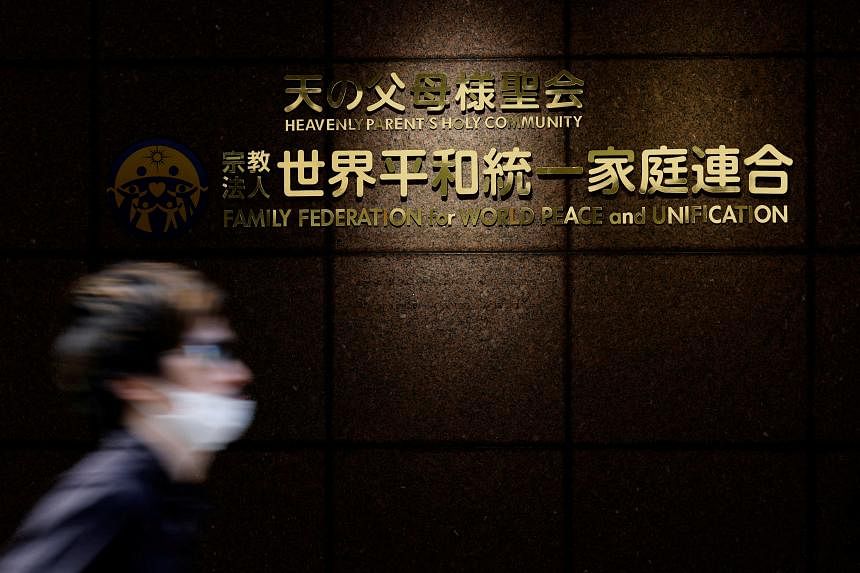TOKYO – Japan’s Parliament on Saturday enacted a law to ban organisations from maliciously soliciting donations, following controversy over the fundraising practices of the Unification Church.
The legislation, aimed at preventing people from falling victim to controversial religious groups, prohibits organisations from requesting donors to borrow money by selling real estate and other assets.
Under the new law, members of groups engaged in unfair solicitation could face a prison sentence of up to one year or a fine of up to 1 million yen (S$9,900). It would also allow spouses and dependent children of donors to cancel donations on their behalf.
Prime Minister Fumio Kishida’s government rushed to craft the Bill in an apparent bid to curb a plunge in the approval ratings for his Cabinet, triggered by issues surrounding the religious group after former prime minister Shinzo Abe was fatally shot by the son of a follower of the Unification Church, Kyodo News reported on Saturday.
The House of Councillors, or Upper House, passed the Bill with the support of the ruling parties and most of the opposition parties on the final day of the 69-day extraordinary parliamentary session. XINHUA

